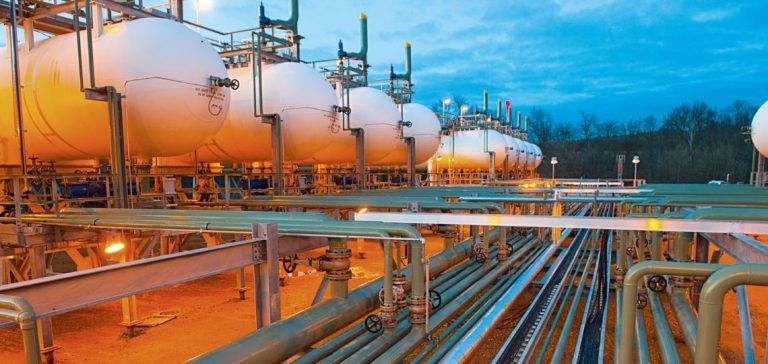The recent shipment of 112,000 barrels of petroleum coke from Pemex to India represents the first official output from this complex. Inaugurated in July 2022, the Dos Bocas refinery, located in Tabasco state, was presented as a central project for Mexico’s energy sovereignty. Nevertheless, its development has been marred by numerous technical and financial hurdles, raising the total project cost from $8 billion to $16.8 billion.
Although modest compared to its total production capacity of 340,000 barrels per day (b/d), this export represents a positive signal for the refinery’s ramp-up. Petroleum coke, a by-product of crude oil distillation, is mainly used in power plants and heavy industries such as steelmaking. The chosen destination, Dahej port in Gujarat, India, is a strategic industrial hub for industrial raw material trade, showing a clear orientation towards the Asian market.
A controversial project with multiple stakes
The refinery’s ambition is to reduce Mexico’s energy dependency on imported fuels, mainly from the United States. President Andrés Manuel López Obrador, who made this refinery a cornerstone of his energy policy, leaves office this month, leaving the project in the hands of his successor, Claudia Sheinbaum. She must now take on the challenge of making this infrastructure profitable and fully operational despite its delays. The difficulties in integrating various production units, as highlighted by interconnection issues reported in August 2024, are likely to slow down the complete start-up.
Current production is limited to diesel and petroleum coke, with ongoing tests to adjust the quality of these products to international market standards. However, these initial sales fall short of the initial production promises, as the government had hoped for a significant automotive fuel yield by 2024.
Technical challenges and commercial prospects
The main technical obstacle for Pemex is optimizing the coking process, a complex operation that converts residual oil into petroleum coke. This unit is currently in its testing phase, explaining the low production compared to the refinery’s nominal capacity. Pemex’s strategy of targeting the Indian market is a pragmatic decision, given that the country is one of the largest industrial fuel consumers due to its growing energy demand. However, margins in this market are under pressure, notably due to competition from Middle Eastern and Russian producers.
In the long run, the refinery aims to produce refined products for the North American and European markets, provided it overcomes production optimization challenges. The complexity of synchronizing the production units could delay this goal by several months or even years if additional investments needed to stabilize operations are not made promptly.
Implications for Mexico’s energy strategy
Olmeca is a crucial component of López Obrador’s energy policy, aimed at strengthening Mexico’s energy sovereignty by reducing refined fuel imports. Mexico currently relies on U.S. refineries for over 60% of its gasoline and diesel needs. If the refinery meets its production targets and operates efficiently, it could significantly reduce this dependency, generating substantial long-term savings. Nevertheless, the project’s exorbitant costs represent a significant financial burden for Pemex, which already holds the largest debt among Latin American oil companies.
Claudia Sheinbaum’s administration will need to handle this asset prudently to prevent it from becoming a continuous source of losses. Pemex’s delicate financial situation, with debts nearing $110 billion, makes any expansion or optimization of the refinery particularly sensitive. Financial markets are closely monitoring the performance of this infrastructure, as any further delays or cost overruns could trigger downward revisions in the company’s credit ratings.
The first petroleum coke export by the Olmeca refinery is a symbolic but crucial step for Pemex as Mexico seeks to realign its energy strategy under the new administration. If this infrastructure overcomes its current challenges, it could not only reduce Mexico’s dependence on fuel imports but also position the country as a key exporter of industrial fuels to Asia. However, operational and financial risks remain high, requiring sustained attention to secure the future of this ambitious initiative.






















